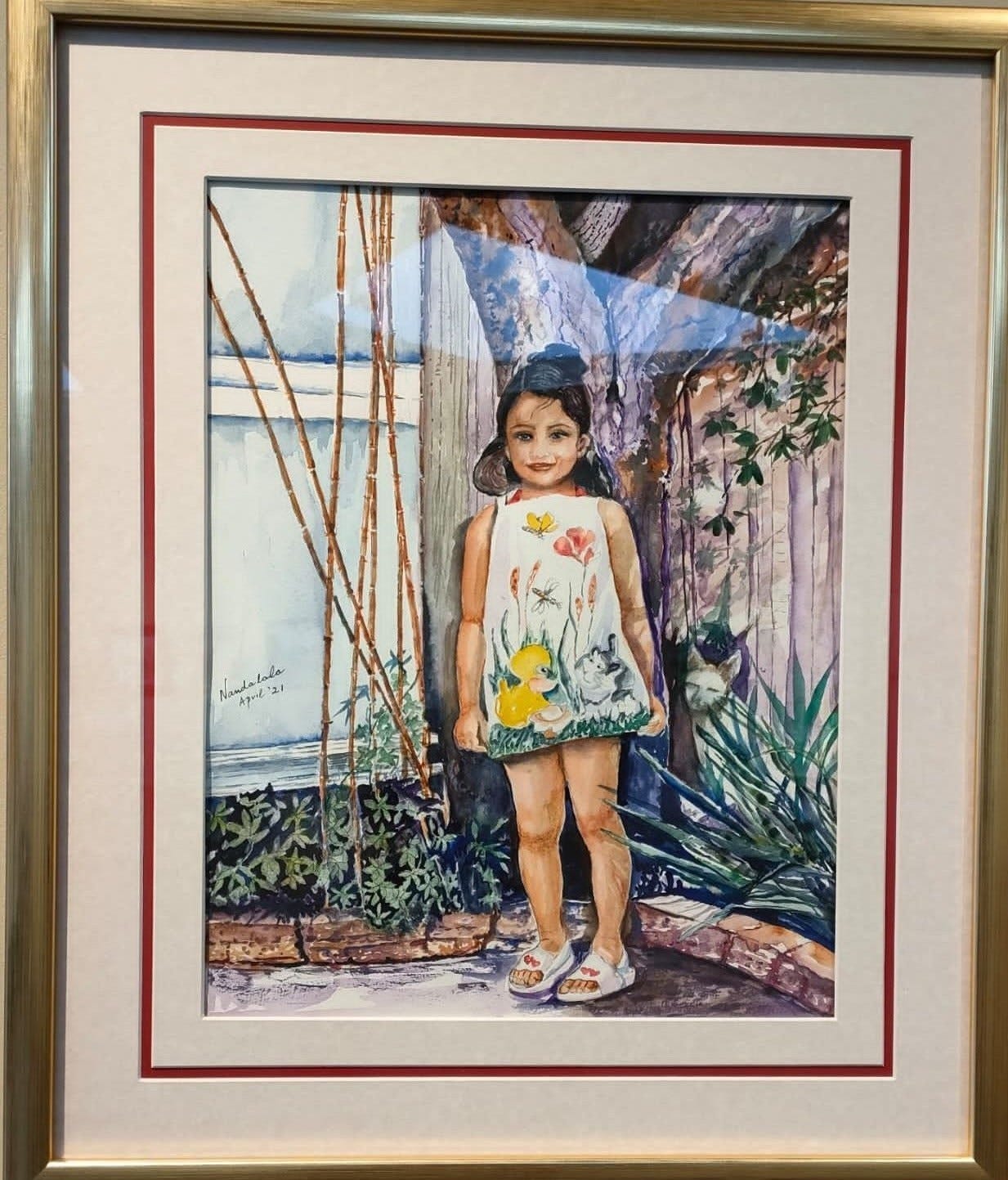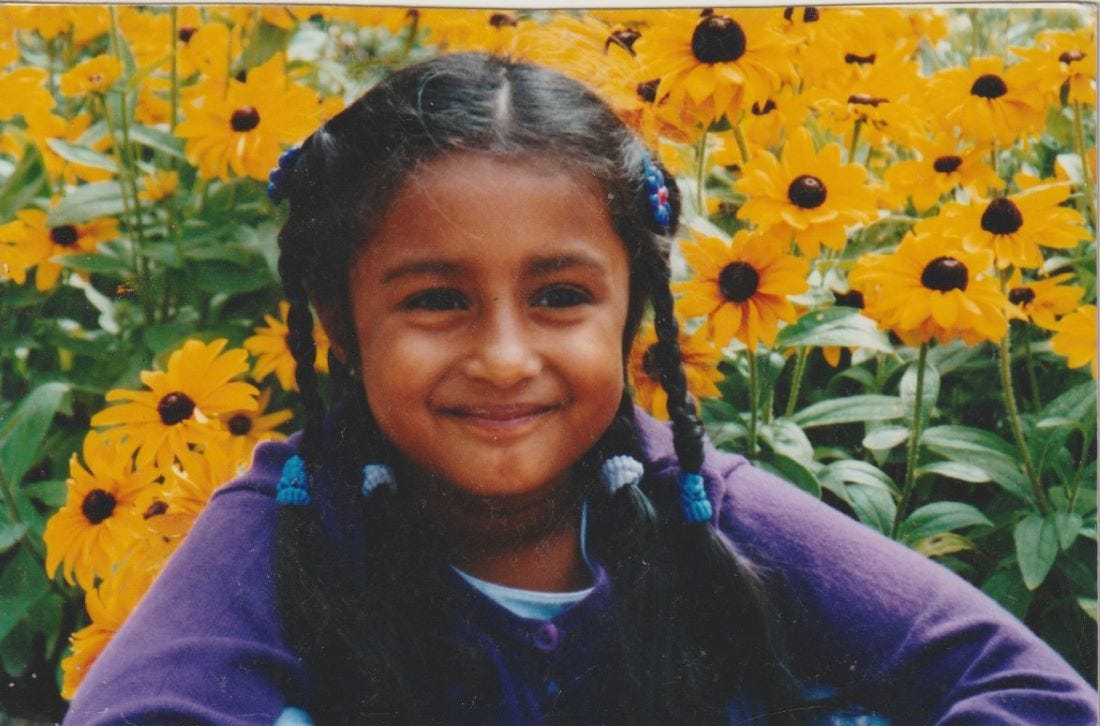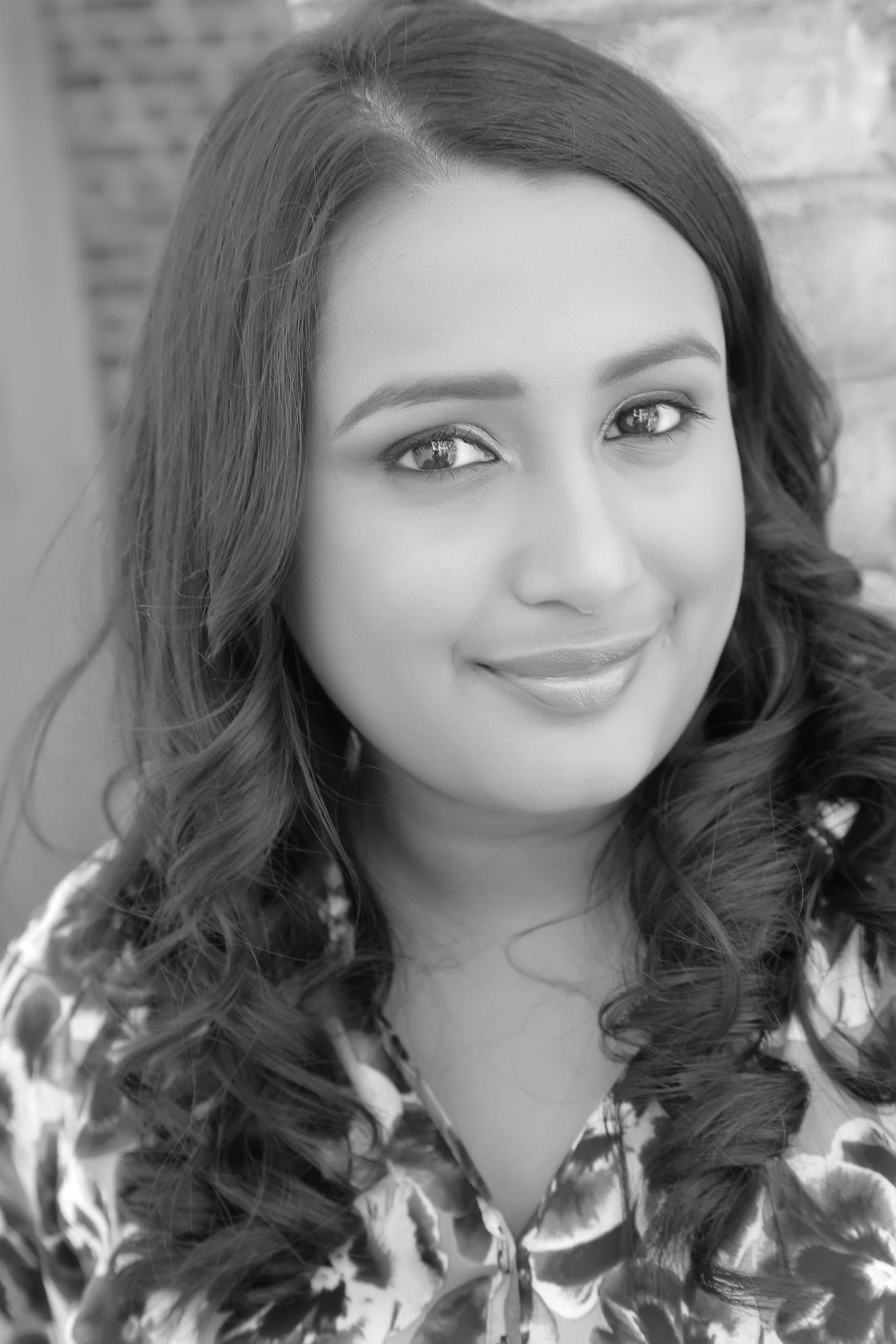From ignorance lead me to truth
From darkness lead me to light
From death lead me to immortality — Bṛhadāraṇyaka Upanishad, I.iii.28
Someone too good to be true. But sometimes that is not so as at times there is someone who is genuinely good and real. A rarity of rarities. My eldest niece, my younger sister’s first child, my parents’ first grandchild. Just over three weeks ago, a month before her 29th birthday this month; she was a wonderful doctor and training to be an anaesthetist.
The centre of her family along with her brother and sister but she was representative of the family. She was perhaps the most reliable younger person I have ever known. Perhaps the most trustworthy of anyone I have known, who replied and looked into something if asked no matter how busy she was; always ready to help. Taking charge. Personable, excellent sense of taste, elegant, liked her food, a good cook, multi-talented (singing being a prime example), beautiful in spirit and in person. Unique. A Blessing to any family. An immeasurable one to us. Taken away far too soon. She has a higher calling that must be served.
It is difficult to say what is meant to be said, perhaps more another time.
I remember accompanying her, my sister and brother-in-law back to the UK after she was born and ready to travel. Britain would be home but she would return to Singapore for visits. Later, her parents were confident enough to send her to visit as was her wish knowing she would be fine. When she was eleven, she arrived on SIA to see us. I remember the stewardess holding her hand and leading her with her bag towards us as we waited at the arrival lounge, she with a big smile on her face.
But earlier, as a toddler, my sister also visited us with her. In those early days of the Internet, I sat her down on a chair at home in front of my computer; it was her first proper exposure to one, I believe. As I did a quick run through on how it operated, she reached for the mouse which I only allowed after demonstrating how it was used. She went wild with it. That Mac had various fun extensions, and one with Arnold Schwarzenegger’s voice recorded in it. Each time you spoke when it was activated, he would say “Quiet” and the longer you spoke the louder it responded until there was a crescendo of “Shut up!”; she was thrilled as she shouted back louder than Arnie. When I spun her around my swivel chair she laughed gleefully; at times I pushed her on the chair along the upper floor where our rooms were and she would scream and clap. Some of the marks on the parquet from the wheels of the chair remain.
Sometimes when I returned at night from work and she was up with my parents, I would go to greet them and she would rush over and jump or run on the spot, grinning or laughing and calling out to me; I would lift and kiss her and ask her how she was. I called her McBundy—a reference to the prosaic ‘Bundle of Joy’. Soon after she was born, I had written a poem entitled ‘The McBundy Quartet’ reminiscent but not comparable, of course, to some of Edward Lear. Years later her mother gave it to her. And she showed it to me when I visited them again; it was suggested she laminate the pages which I believe she did.
She said, “So you believe me.” To which I replied, “Of course.” Immediately, she looked relieved. It was a small incident but to a child it can be perceived differently. I am glad to have had the chance to show that there may always be someone who understands and believes you.
On that early solo trip there was an occasion at the supermarket with my parents; she was asked to pick a box of soup packets which was pointed out. She picked the correct one but my parents thought it was the wrong one, replaced it and selected another: the wrong one. I had made a similar mistake (and warned my parents about it). At the time the ‘Chicken mushroom with croutons’ was similar in design to ‘Mushroom with croutons’ (which we wanted). A quick glance at the boxes next to each other compounded the probability of picking the incorrect one. Upon unpacking the groceries, it was clear they had got the wrong soup. She was told she had chosen the wrong box. Later, she spoke to me and explained that she had chosen the right box but was told it was the wrong one, and the incorrect one was chosen in a hurry.
Instantly, I reassured her that I had made a similar mistake not too long ago and that the boxes looked similar. She said, “So you believe me.” To which I replied, “Of course.” Immediately, she looked relieved. It was a small incident but to a child it can be perceived differently. I am glad to have had the chance to show that there may always be someone who understands and believes you; and I can only hope she had that experience of empathy and reassurance regularly over the years as the challenges increased.
But that had nothing to do with how much my parents and second sister, slightly younger to Mettha’s mum, adored her. My father taught her spiritual songs which she sang as if inspired, and she had a special bond with my mother. My mother still remembers that as soon as Mettha was born and was held by her mum, she knew there was something remarkable about her for she curled her hand around my mother’s finger while looking into her eyes.
She read a lot and liked the stories I told her and her younger brother, and eventually, a new addition: her younger sister. When Mettha was older and she visited with her mum and siblings, I continued with the stories; earlier I had even emailed them for my sister to read to them. On that visit Mettha would come up to the settee in the hall where I told her siblings the continuing tale meant for children; she would ask whether she could listen as well and I replied she always could. By then it was clear from her knowing smile and astute questions that she could step back and appreciate the fictionality of what was told. She queried background material and helped clarify what I had accidentally mixed up in the narrative. Her siblings would a few years later also remind me of incidents and characters that I had temporarily forgotten; I had to keep up to speed with what I had created for them.
It was my recommendation that she read all of Conan Doyle’s Sherlock Holmes which I had completed by the time I was 14 that led her to do the same when she was a little older. Then there was the modernised adaptation of the stories into the hit television series in her teens; she kept telling me to watch them. When she made her second solo visit to us ten years ago, and insisted I watch the Holmes episodes released on DVD, I got hold of them and watched them with her. She was familiar with the episodes but the genuine thrill with which she rewatched them was satisfying as I knew she too had become a fan of Holmes.
On that visit, she tried all the local food she liked and regaled her family about it like a smorgasbord report. She once brought out her phone and showed me pictures of family travels and alongside a delightful commentary laughed at some of her recollections. Family truly mattered and it was central to her life, and that indeed was borne out in the years to come. With great happiness I saw how close the family was; if my father was still around it would have made him happy too as he was a true believer in family togetherness.
During that trip she wore a hat that belonged to my dad, my mother helped draw a moustache, and I gave an old golf iron with which she made some Chaplinesque poses true to her ability to perform. The pictures were subsequently given to her but I have the negatives somewhere and will develop them if that is still possible. When she returned, she soon received her examination results and learnt that she was accepted by the University of London to pursue medicine in the tradition of her father and his family.
I sometimes saw her sitting and reading in the hall in the early afternoon. She would then change seats and look out of the main windows onto the front garden, book aside, and gaze out with a smile. I observed her natural state: peaceful, gentle, lambent.
Ten years after enrolling as a medical student: the views of her friends and colleagues were of the most positive nature. She was described as always being there for a friend, attending a birthday whenever possible, accompanying someone who needed company, professional, dependable, highly organised, efficient, effective and expected to rise fast. And particularly as a doctor always kind, and going beyond what was required even in palliative care.
The last time I met her was a year ago when she visited with her mother. By then a fully qualified doctor undergoing specialisation; this time we discussed politics, medicine, and other matters. A conversation quite different from past ones. The last time I spoke to her was some months ago when her family called. The last time I heard her voice was when her mum visited us a couple of months ago; she was talking to her mother on the phone and I heard her and said to say ‘hello’. I wish I greeted her myself but did not want to intrude on the conversation.
My parents’ home has been a family base of sorts for Mettha and her siblings outside the UK. On her visit ten years ago, I sometimes saw her sitting and reading in the hall in the early afternoon. She would then change seats and look out of the main windows onto the front garden, book aside, and gaze out with a smile. I observed her natural state: peaceful, gentle, lambent.
She would walk around the house towards the end of that visit, up to the attic and the back of the house and up the spiral stairs onto a balcony there, reliving memories she said; she even recorded on her phone scenes of the house, garden, and asked me to retell about sitting in front of my computer, swivelling her around, and pushing her on the chair. She had a strong sense of place, familial ties; but also, an ability to celebrate others as she would always give positive feedback—despite her demanding schedule as a doctor in a hospital—on paintings done by my mother who sent pictures of them on the phone; she went beyond saying or texting, and also gave a congratulatory card to her mother who completed a stringent English teaching course (her background is in law); she also became her mother’s best friend.
An indelible image I have is at the end of that visit when she was eleven. My parents accompanied her to the airport to send her off. She sat at the back of the car with my mother. After saying goodbye and that we would meet again soon, I watched as my father started the car and it pulled away. Suddenly, she swung around on the seat, smiled, and waved goodbye many times: I waved back, smiling. She had the excitement of the trip before her, returning home to her family, and all the distractions that would occupy a young person’s mind, yet she turned and waved. Passages, a chapter, a novel could be written around it. That unexpected gesture, the innocence, the spontaneity, the natural warmth, affection, pleasantness that went with it, and the energy that shone back, cannot be forgotten.
On many other visits and when I visited her family, there were always goodbyes, but that particular moment as she left keeps surfacing. Always young, loving, bringing light your way.
Growing old, cynical, feeble, hardened in views, disillusioned, awaiting death during prolonged illness—was never meant for her. She was there vital, present, then peacefully, she left, no cause could be given, she was recalled Home; she had done what needed to be done. She served as the example she was meant to be, so we can remember and learn from her in wonder. Her life seems an unfinished symphony but it was complete, that wave for me, the coda. She had blessed the life of those she was with, especially her family, and it was time to leave. The lessons taught, that continue to be learnt with difficulty due to her absence, but that is our journey.
The path, a difficult one with crowns of thorn along the way, is meant to lead to an awakening from what is transient; pictures flickering on a screen in which we play roles, that at long last result in returning to the source of the light that causes the images to appear. Lessons not learnt, have to be learned by returning.
It is clear now that she is the most extraordinary person I have known. Many talented and able people have come my way but as an individual none measure up to her. Thinking back, she also had many qualities you would hope to see in top executives and senior management in any organisation. Her compassion, good sense, steadiness of thought, clarity of mind, decisiveness, and ability to communicate unambiguously in speech and writing, and humour were gifts. Indeed, her name Mettha means compassion, and Oshadi is healer or bright star in the firmament.
Family and those close keep saying how difficult it is to accept that she is no longer with us; it is surreal, a dream which we want to wake up from. Indeed, all is illusion as our spiritual teachings have shown. The path, a difficult one with crowns of thorn along the way, is meant to lead to an awakening from what is transient; pictures flickering on a screen in which we play roles, that at long last result in returning to the source of the light that causes the images to appear. Lessons not learnt, have to be learned by returning to play out different roles again in the unfolding drama on the screen of the universe.
And that knowing wave through the rear window all those years ago, and look in the eyes that said ‘till we meet again’, luminous, confident, joyous, and showing all is well. I realise now that she already said ‘Goodbye’ in advance and there was no need to say so again to me, and I acknowledged in my wave back we would indeed meet again. But this time ‘meet again’ means something else. When we do meet next, I will have stories to tell of what happened in the time she was not here. And she will ask questions and seek clarifications and I would have to come up to speed with my account.
I understand better now what I pondered about all these years about that wave: we may not understand, we are saddened, we mourn loss but there is a reuniting for all is in Divine Order. She had already reminded me of this in her youth.
And she has finally returned from whence she came—as she ascended back to the Light.
© 2024 Sanjay Perera. All rights reserved.












